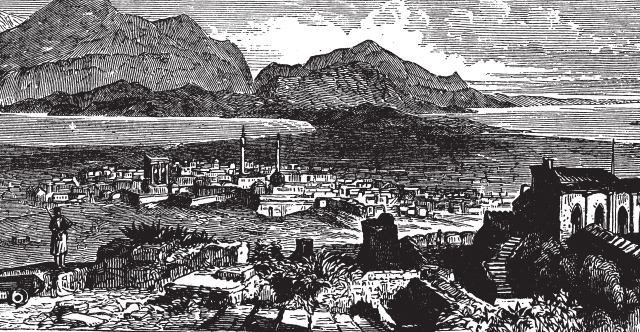
1
N
ow about food offered to idols: of course we know that all of us possess knowledge knowledge causes people to be puffed up (to bear themselves loftily and be proud), but love (affection and goodwill and benevolence) edifies and builds up and encourages one to grow.
Quanto alle carni sacrificate agli idoli, sappiamo che tutti abbiamo conoscenza. La conoscenza gonfia, ma l’amore edifica.
2
I
f anyone imagines that he has come to know and understand much, he does not yet perceive and recognize and understand as strongly and clearly, nor has he become as intimately acquainted with anything as he ought or as is necessary.
Se qualcuno pensa di conoscere qualcosa, non sa ancora come si deve conoscere;
3
B
ut if one loves God truly '> with affectionate reverence, prompt obedience, and grateful recognition of His blessing], he is known by God '> recognized as worthy of His intimacy and love, and he is owned by Him].
ma se qualcuno ama Dio, è conosciuto da lui.
4
I
n this matter, then, of eating food offered to idols, we know that an idol is nothing (has no real existence) and that there is no God but one.
Quanto dunque al mangiare carni sacrificate agli idoli, sappiamo che l’idolo non è nulla nel mondo e che non c’è che un Dio solo.
5
F
or although there may be so-called gods, whether in heaven or on earth, as indeed there are many of them, both of gods and of lords and masters,
Poiché, sebbene vi siano cosiddetti dèi sia in cielo sia in terra, come infatti ci sono molti dèi e molti signori,
6
Y
et for us there is one God, the Father, Who is the Source of all things and for Whom we, and one Lord, Jesus Christ, through and by Whom are all things and through and by Whom we.
tuttavia per noi c’è un solo Dio, il Padre, dal quale sono tutte le cose, e noi viviamo per lui, e un solo Signore, Gesù Cristo, mediante il quale sono tutte le cose e mediante il quale anche noi siamo.
7
N
evertheless, not all possess this knowledge. But some, through being all their lives until now accustomed to idols, still consider the food as that sacrificed to an god; and their weak consciences become defiled and injured if they eat.
Ma non in tutti è la conoscenza; anzi, alcuni, abituati finora all’idolo, mangiano di quella carne come se fosse una cosa sacrificata a un idolo; e la loro coscienza, essendo debole, ne è contaminata.
8
N
ow food will not cause our acceptance by God nor commend us to Him. Eating gives us no advantage; neither do we come short or become any worse if we do not eat.
Ora non è un cibo che ci farà graditi a Dio; se non mangiamo, non abbiamo nulla di meno; e se mangiamo non abbiamo nulla di più.
9
O
nly be careful that this power of choice (this permission and liberty to do as you please) which is yours, does not become a hindrance (cause of stumbling) to the weak or overscrupulous.
Ma badate che questo vostro diritto non diventi un inciampo per i deboli.
10
F
or suppose someone sees you, a man having knowledge reclining at table in an idol’s temple, might he not be encouraged and emboldened if he is weak and uncertain, and eat what is for the purpose of idol worship?
Perché se qualcuno vede te, che hai conoscenza, seduto a tavola in un tempio dedicato agli idoli, la sua coscienza, se egli è debole, non sarà tentata di mangiare carni sacrificate agli idoli?
11
A
nd so by your enlightenment (your knowledge of spiritual things), this weak man is ruined (is lost and perishes)—the brother for whom Christ (the Messiah) died!
Così, per la tua conoscenza, è danneggiato il debole, il fratello per il quale Cristo è morto.
12
A
nd when you sin against your brethren in this way, wounding and damaging their weak conscience, you sin against Christ.
Ora, peccando in tal modo contro i fratelli, ferendo la loro coscienza che è debole, voi peccate contro Cristo.
13
T
herefore, if food is a cause of my brother’s falling or of hindering, I will not eat flesh forever, lest I cause my brother to be tripped up and fall and to be offended.
Perciò, se un cibo scandalizza mio fratello, non mangerò mai più carne, per non scandalizzare mio fratello.
 English
English
 Albanian - Shqip
Albanian - Shqip
 Arabic - العربية
Arabic - العربية
 Bulgarian - Български
Bulgarian - Български
 Chinese - 汉语
Chinese - 汉语
 English - English
English - English
 French - Français
French - Français
 German - Deutsch
German - Deutsch
 Italian - Italiano
Italian - Italiano
 Māori - Te Reo Māori
Māori - Te Reo Māori
 Portuguese - Português
Portuguese - Português
 Romanian - Română
Romanian - Română
 Russian - Русский
Russian - Русский
 Somali - Af Soomaali
Somali - Af Soomaali
 Spanish - Español
Spanish - Español
 Ukrainian - Українська
Ukrainian - Українська
 Vietnamese - Tiêng Viêt
Vietnamese - Tiêng Viêt
 Italian
Italian
 Albanian - Shqip
Albanian - Shqip
 Arabic - العربية
Arabic - العربية
 Bulgarian - Български
Bulgarian - Български
 Chinese - 汉语
Chinese - 汉语
 English - English
English - English
 French - Français
French - Français
 German - Deutsch
German - Deutsch
 Italian - Italiano
Italian - Italiano
 Māori - Te Reo Māori
Māori - Te Reo Māori
 Portuguese - Português
Portuguese - Português
 Romanian - Română
Romanian - Română
 Russian - Русский
Russian - Русский
 Somali - Af Soomaali
Somali - Af Soomaali
 Spanish - Español
Spanish - Español
 Ukrainian - Українська
Ukrainian - Українська
 Vietnamese - Tiêng Viêt
Vietnamese - Tiêng Viêt
